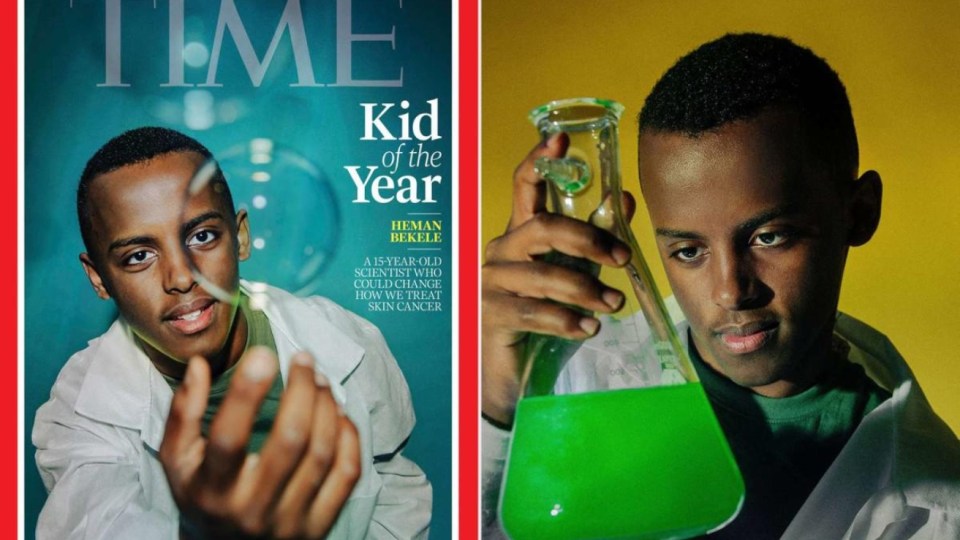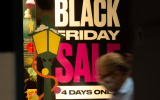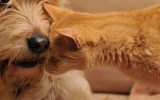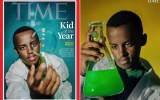


For some children, a beginner’s chemistry set is merely something to play with a bit before inevitably abandoning it to gather dust in the corner of the room.
For seven-year-old Heman Bekele, it was a possible solution to the global energy crisis.
Although he didn’t end up creating a source of unlimited energy (in fact, he almost started a fire after mixing aluminium and sodium hydroxide), Heman’s experimentations with the chemistry set emboldened his scientific curiosity.
Now the 15-year-old American has been named Time magazine’s Kid of the Year.
The nod comes after Heman won 3M Company and Discovery Education’s Young Scientist Challenge – along with $US25,000 ($37,000) in prize money – in October.
His winning invention? Soap that could one day treat, and even prevent, multiple forms of skin cancer.
It will likely take years before such a product comes becomes available to the public, but Heman is already spending part of every weekday of his summer holidays working in a lab at the Johns Hopkins Bloomberg School of Public Health to bring his dream to life.
“I’m really passionate about skin-cancer research,” he told Time.
“Whether it’s my own research or what’s happening in the field.
“It’s absolutely incredible to think that one day my bar of soap will be able to make a direct impact on somebody else’s life. That’s the reason I started this all in the first place.”
Congratulations to 15-year-old Heman Bekele, @TIME magazine’s Kid of the Year, who invented a soap that could help treat skin cancer. pic.twitter.com/jUxs4RarPb
— Keith Boykin (@keithboykin) August 17, 2024
Born in Ethiopia before his family emigrated to the US, Heman said his parents had instilled the importance of sunscreen. He eventually realised the full risk of too much exposure to the sun and ultraviolet radiation.
After reading about imiquimod, a drug approved to fight basal cell carcinoma (a form of skin cancer) that shows potential against other skin cancers, Heman thought putting the drug into soap could make it more accessible and affordable.
If successful, the invention would have an impact on millions of lives globally, including Australia; about two out of three Australians will be diagnosed with some form of skin cancer in their lifetime.
“What is one thing that is an internationally impactful idea, something that everyone can use, [regardless of] socioeconomic class?” Heman recalled thinking a few years ago.
“Almost everyone uses soap and water for cleaning. So soap would probably be the best option.”
In 2023, Heman told NPR his soap was dark white with a slightly bumpy texture, and felt slightly sticky; the latter aspect could be necessary since the medicinal portion of the soap needs to stay on the body after being washed off.
The soap has a “strong potent medicine” smell, but he said it was not the “worst-smelling thing”. Heman also plans to package the soap in biodegradable packaging.
After pitching his idea to a panel of judges for the Young Scientist Challenge in 2023, the teenager was named the winner before the day was over.
Heman met Johns Hopkins assistant professor Vito Rebecca while attending a Melanoma Research Alliance networking event in February. Rebecca subsequently agreed to sponsor him and invited him to work at the university’s Baltimore lab.
Since then, Heman and Rebecca have run months of research on mice, injecting the animals with strains of skin cancer and preparing to apply imiquimod-infused soap to find out the results.
If the experiments are successful, Heman will have to patent the formula and get certification from the US Food and Drug Administration, a process that could take a decade.
“A lot of people have this mindset that everything’s been done [in science], there’s nothing left for me to do,” Heman told Time.
“To anybody having that thought, [I’d say] we’ll never run out of ideas in this world.
“Just keep inventing. Keep thinking of new ways to improve our world and keep making it a better place.”
When he’s not trying to treat cancer, the teenager plays flute and trombone as part of his high school’s marching band, plays basketball, reads, and said he turns his brain off by playing chess.
Honourable mentions
Out of the other young high achievers that had been in the running for Kid of the Year, Time listed five honourees.
These included:
- Dom Pecora (15): Uses his earnings from repairing and selling new and refurbished bikes to donate bikes to young people recovering from addiction and people experiencing homelessness
- Madhvi Chittoor (13): Has spent years of her young life advocating for a healthier environment. She has worked with politicians to campaign for bans on toxic PFAS chemicals in consumer goods, single-use plastic bags in major retail stores, and plastic-foam containers in restaurants
-
Jordan Sucato (15): Founded non-profit Laws for Paws limited liability company this year to provide protective boots for homeless dogs or pets of homeless people. It comes as summers get hotter and her local area has experienced an “explosion” of homelessness in recent years
-
Keivonn Woodard (11): The young deaf actor’s performance on The Last of Us was widely praised, and won him an Emmy nomination for outstanding guest actor in a drama series. This made Woodard the youngest actor to be recognised in the category, and the first black deaf actor in the Television Academy’s history to secure a nomination
- Shanya Gill (13): After a restaurant behind her family’s home burned down in 2022, Shanya decided to create a device that alerted users to fires before they start. Her invention uses a thermal camera and a small computer to detect unattended heat sources; if it has been two minutes and there’s no sign of humans, it sends a text to warn of a potential fire. She is working to incorporate AI to improve the programming, and has her code online so people offer ideas for improvements. She does not want to patent the technology to ensure it can be widely used.










